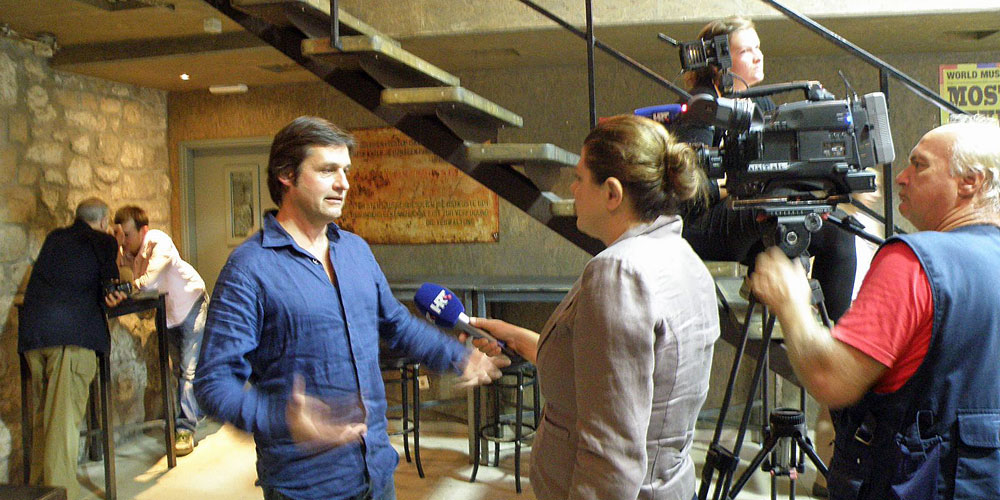The natural heritage of the UNESCO city of Dubrovnik is threatened by plans to build a hydroelectric power-plant at the source of city’s river Ombla – a potential Natura 2000 area with rich biodiversity, and the source of drinking water for Dubrovnik city.
Friends of the Earth Croatia, Friends of the Earth Europe and local citizen’s initiative Sr? je naš, expressed concern at a press conference today, calling for greater public participation in the project.
If construction goes ahead, Croatian electricity company HEP will flood a cave system that is due to be protected as part of the Natura 2000 biodiversity network when Croatia enters the European Union in 2013. The strain on the water supply would also impact local residents’ access to water.
The decision to build rests upon the environmental impact assessment of the project – a report that is now over 10 years old, and is considered both outdated and of poor quality. This report is challenged by four independent Croatian experts, and was deemed unacceptable by the European Commission.
Enes ?erimagi? from Friends of the Earth Croatia said: “The original impact assessment is simply not credible, and the project will only move forward at great expense to local biodiversity and the citizens of Dubrovnik. It is hard to believe that the Croatian Government is still pushing for this.”
In addition, the commercial viability of the project is questionable: the European Bank for Reconstruction and Development, who provided financing for the project, concluded that the project would be reliant on heavy government subsidies or increased electricity prices to be successful – neither of which would be welcomed by the Croatian public.
However, the Croatian government has not heeded these warnings and continues to push the project forward.
Bertrand Sansonnens, executive committee member for Friends of the Earth Europe said: “We support the local campaigns in Dubrovnik – a UNESCO heritage site, and a place rich in biodiversity. Public participation is crucial in projects like these that so heavily impact the local community and environment.”
***
There are potential links between this project and plans to build a golf resort on the Srdj plateau above Dubrovnik. The power-plant would pump 1,500 litres a second from the Ombla source, over three times the current output that provides for the needs of the city. It is likely this water is needed for the planned golf resort on the Srdj plateau.







